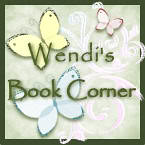
I would like to start by thanking Mr. David Ebershoff for agreeing to take the time to participate in this interview. His latest book is The 19th Wife, a historical fiction book that tells two stories, the first based on the life of Ann Eliza Young. and the second, a present-day story of a young man named Jordan, whose life was profoundly influenced by polygamy. I was fascinated by David's book and look forward to reading more from him!
If you haven't read my review of The 19th Wife, click here.
What inspired you to write this book?
About seven years ago I was talking to a professor of 19th century women’s history. This woman knows a lot about the lives of 19th century American women, some well known others now obscure. In our conversation she mentioned a woman known as the 19th Wife. I stopped. What a strange nickname. And so I asked, Who was the 19th Wife? And, more important, What was it like to be the 19th Wife?
Can you personally relate to any of the characters or the things they faced/went through?
I like to think I can relate to all of them. If I couldn’t I’m not sure I would have been able to write them convincingly. But I suppose I relate most closely to the book’s outsiders: Ann Eliza, Jordan, and Tom. I have a special fondness for Kelly Dee, the graduate student from Brigham Young University. The combination of her intelligence and sincerity is potent. But I must admit to a soft spot for Brigham. Even though Ann Eliza opposed him, I came to understand his point of view. I couldn’t have imagined his night in prison without empathizing with his yearnings.
Were there any aspects of the book that you struggled with, ie. a particular scene, a character, an area of research?
The most challenging was writing the section called “The Prison Diary of Brigham Young”. It’s narrated by Brigham during the night he spends in prison in the midst of his divorce trial from Ann Eliza. At first I was intimidated, but the more I read by and about Brigham, the more comfortable I became taking on his voice. I wrote that section very quickly – over the course of three nights – and I felt I was staying up through the night just as Brigham does during his long night in jail.
If your book was being discussed by a book club, or a few friends meeting over coffee, what about the book do you think would drive the most discussion (particular character, event, theme)?
That’s a good question, but also a difficult one for me to answer conclusively. I’m sure some people would focus on the complex issues of polygamy: religious and/or personal freedom vs. protecting women and children. Other readers might discuss the religious questions: the mysteries of faith and God, and the individuality of each person’s faith. Others still might spend time on the book’s mysteries: is Jordan’s mother guilty of killing her husband and what, ultimately, happened to Ann Eliza Young. Some readers might contemplate the many characters: the motivations of Ann Eliza and Brigham Young, perhaps, and Jordan’s developing sense of self. And I suppose some readers would think about all of these, plus many, many more.
Are you working on another book? If so, can you give us an idea of what it is about?
I’ve just begun a new book about family and tennis.
 Book Specific:
Book Specific:In the book, you have created/included some references that appeared to show how hard it was to obtain information from the LDS Archives. Did you run into any problems while trying to research Ann Eliza, LDS, polygamy, etc?
The LDS Church maintains general historical archives that are closed to non-members. I respect and understand this. Beyond that, the Church keeps private archives which are closed to all but the highest members of the Church’s leadership. About these archives we know very little, although many people speculate about what might be in those files. I assume they must include documents about Joseph, Brigham, polygamy, and early Church history. I could be wrong about this, but there are many reasons to believe that at least a portion of these archives are devoted to documents concerning the Church’s leadership in the 19th century. Yet of course I have no idea what these documents say – whether they are laudatory or unflattering or, most likely, some combination thereof. It’s worth noting, however, that nearly all religious institutions maintain private archives. We can only guess what stands on the private bookshelves in Rome. And before we let our imaginations run wild with conspiracies about the secret archives in Salt Lake City, let’s bear in mind that the closed archives of most organizations contain yards and yards of documents concerning the prosaic and the mundane.
I was fascinated to learn about the cult-type aspects of the Firsts. We had a distant relative who died in Jonestown, and I always thought it very strange that anyone could be so taken-in by a person so that they believed everything that person said and would do whatever was asked. Your book really opened my eyes to how easy it is to be drawn in to cults like this. It seems like the Firsts began by welcoming people who were looking for love and acceptance. What induced you to research and include the details of how people were enticed into joining the Firsts, and what type of impact did the knowledge have on you personally?
This is always the first thing we wonder about beliefs different from our own. How can anyone believe that? we ask ourselves. That is one of the book’s central ideas – the mysteries of faith. As Ann Eliza says on the first page: Faith is a mystery, elusive to many, and never easy to explain. In order to credibly portray a community like the Firsts, I knew the reader would need to understand how and why people would believe in polygamy as a core religious doctrine. And so I set out to show the reader how these beliefs have formed.
I found Jordan to be a very interesting character. (The influence of all those sister-wives and the neglect they showed to the children? His experience alone at 14, trying to survive in a harsh new world?) I also loved how his character found love and acceptance and an alternative “family,” it made me feel content, which surprised me. I found myself wondering why you chose to make his character gay. Can you give us any insights into the character of Jordan (or possibly Tom)?
In the novel’s contemporary narrative, Jordan is of course trying to figure out if his mother is guilty or innocent of killing his father. But he’s also on another kind of journey: he needs to come to terms with where he comes from and what has happened to him. As he goes about solving his father’s murder, he also begins to come to accept his own legacy. I made Jordan gay for many reasons, but one of them is I wanted him to meet someone like Tom. Tom is a Mormon who has been shunned by his family and church because he is gay. Yet despite this rejection, Tom maintains his faith. He tells Jordan he doesn’t need to enter a temple or attend Sunday services in order to believe. Faith is in the heart. I’ve met people like this: people who have been excommunicated but go on believing. It shows extraordinary resolve, wisdom, and compassion. And so I thought Tom and Jordan – two young men rejected from their respective communities for different religious reasons – would make an unusual and interesting pair. As you say, at the end of the book they form a family, which is the last thing Jordan ever thought he would have.
Lastly, do you have any last thoughts or questions you would like to share with readers?
I always love to hear from readers. Feel free to contact me via my website http://www.19thwife.com/
Thanks!
~ ~ ~ ~ ~ ~ ~ ~ ~ ~ ~ ~ ~ ~ ~ ~ ~ ~ ~ ~ ~ ~ ~ ~ ~ ~ ~ ~ ~ ~ ~ ~ ~ ~ ~ ~
Again, I would like to say a huge thank you to David for agreeing to be interviewed! I had a great time chatting with him, and learning more about his book!
If you would like to visit his website, click here.

This interview has been added to the About the Author Index! Click here to read more author interviews.
















6 Comments:
Great interview! I loved The 19th Wife, so I was glad to read David's working on another book.
Great interview...you make me want to pick up this book.
Nicely done interview, Wendi! As a former Mormon, I've been meaning to pick up this book. If I haven't picked up a book already, usually a good author interview like this one will spur me on.
Awesome interview, Wendi. This is a book I definitely will want to check out. Thanks so much for introducing David. I am definitely adding him to my author's list. :)
Wonderful interview! It's always nice to hear what the author says about the book. I think it makes reading it a richer experience.
--Anna
Diary of an Eccentric
As everyone else has said, this is a great interview! I just reviewed this fabulous book and linked to your post here. I'm definitely going to pick up David's previous books!
Post a Comment